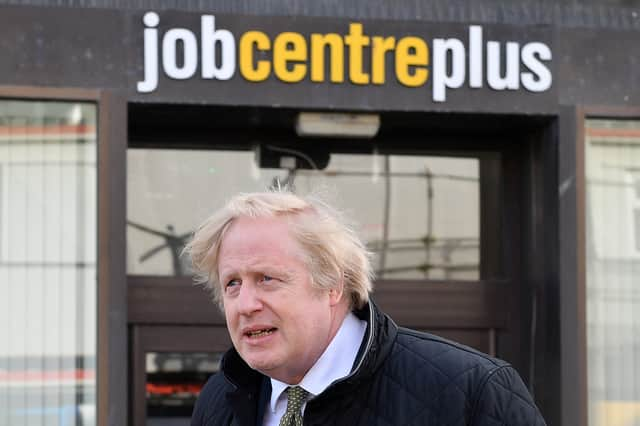Universal Credit changes 2022: what are the new UC rules - and how long do claimants have to find a job?


People on Universal Credit will have less time to find a job under new changes to the system, in a bid to fill vacancies.
The UK government hopes shortening the period unemployed workers are on the jobseekers’ benefit will help people back to work in an array of different sectors.
Advertisement
Hide AdAdvertisement
Hide AdYet the decision has been criticised by Labour who say people should be "supported into jobs to match their skills" and claim long term unemployment is 60% higher than before the pandemic.
What are the Universal Credit changes 2022?
In a major change to the Universal Credit system, unemployed workers will have to look for jobs outside of their preferred line of work after one month.
The current time frame is three months but the UK government has drawn up plans to get 500,000 jobseekers into work by the end of June 2022.
Hospitality, social care and construction are all areas in need of workers and, in a bid to fill vacancies across sectors, ministers have introduced new plans.
Why are changes to Universal Credit being made?
Advertisement
Hide AdAdvertisement
Hide AdGovernment says there are 1.2 million job vacancies at present - 59% higher than before the Covid pandemic hit in early 2020 - and want unemployed workers to fill the void.
The push - dubbed Way to Work - will see jobseekers forced to widen their search for employment outside of their chosen sector or face financial sanctions.
These include sanctions to their benefits if they are deemed to not be making a reasonable effort to secure a role, or if they turn down a job offer.
What has the UK government said about Universal Credit changes?
Ministers have come out backing the changes to the Universal Credit system, claiming it will boost the “jobs-led recovery”.
Advertisement
Hide AdAdvertisement
Hide AdWork and Pensions secretary Therese Coffey said: “Helping people get any job now, means they can get a better job and progress into a career.
“Way to Work is a step change in our offer to claimants and employers, making sure our jobcentre network and excellent work coaches can deliver opportunities, jobs and prosperity to all areas of the country.”
Rishi Sunak, chancellor of the exchequer, said: “It’s important that everyone has the opportunity and support to find a good job to help them get on in life.
“That’s why we’re doubling down on our Plan for Jobs with this new campaign to harness the talent of jobseekers and support employers to fill vacancies, find work and create new opportunities.
“Together we will boost this country’s jobs-led recovery.”
What has been the reaction to Universal Credit changes?
Advertisement
Hide AdAdvertisement
Hide AdThough there has been a mixed response from others, with Labour saying it could do more harm than good.
Alison McGovern, Labour’s shadow employment minister, said: “This announcement has more to do with trying to save the Prime Minister’s job than supporting people into work.
“It’s just tinkering at the edges – long-term unemployment is 60% higher than before the pandemic.
“People should be supported into good jobs that match their skills, which would give them a better chance to secure work long-term.”
Advertisement
Hide AdAdvertisement
Hide AdIn addition, the Guardian reports the National Audit Office found no evidence that benefit sanctions work and that they were just as likely to push people into stop claiming benefits without getting a job.
A message from the editor:
Thank you for reading. NationalWorld is a new national news brand, produced by a team of journalists, editors, video producers and designers who live and work across the UK. Find out more about who’s who in the team, and our editorial values. We want to start a community among our readers, so please follow us on Facebook, Twitter and Instagram, and keep the conversation going. You can also sign up to our email newsletters and get a curated selection of our best reads to your inbox every day.
Comment Guidelines
National World encourages reader discussion on our stories. User feedback, insights and back-and-forth exchanges add a rich layer of context to reporting. Please review our Community Guidelines before commenting.
